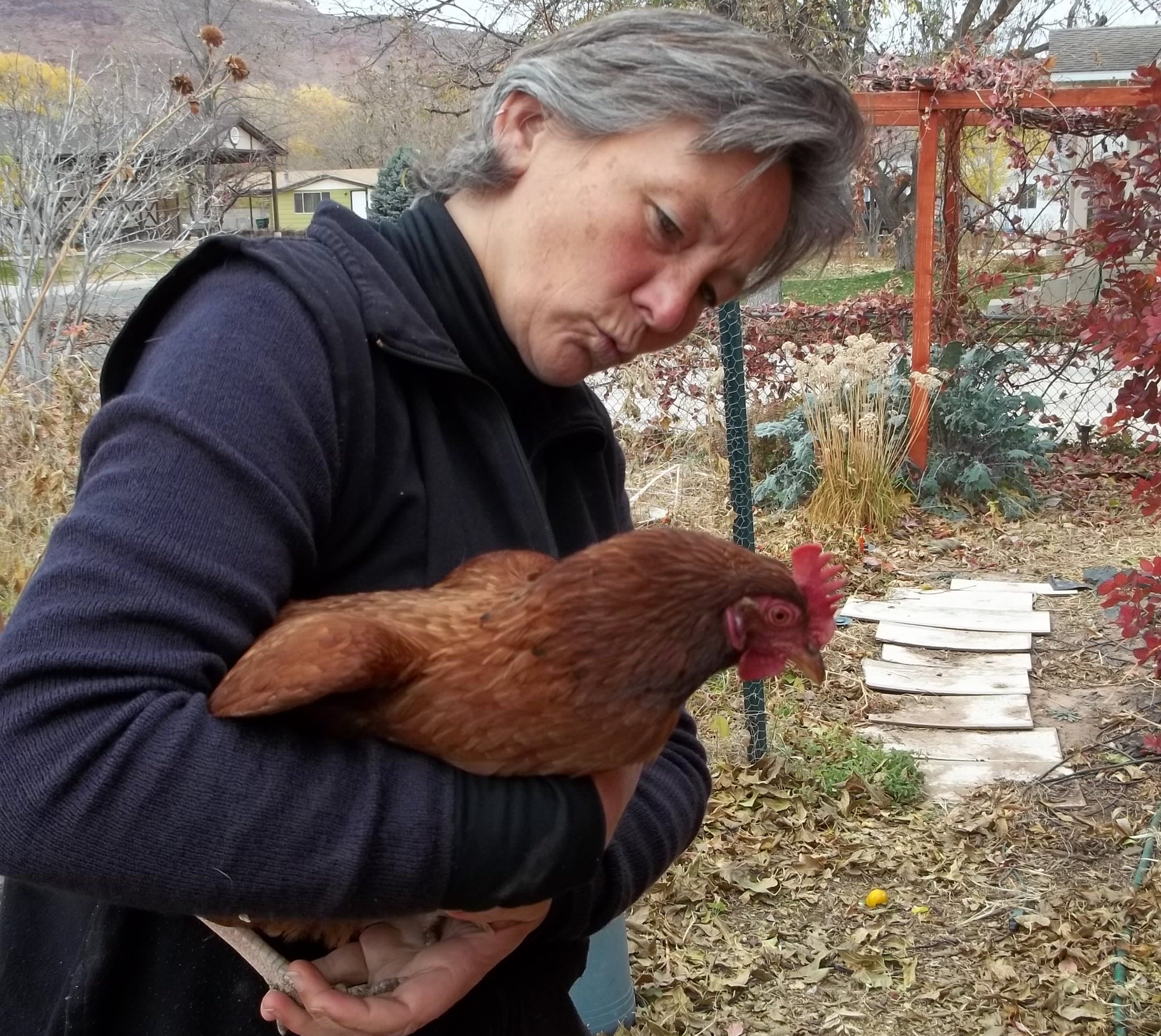Some information may be outdated.
More urban farmers are raising chickens within Moab’s city limits since the passage of a 2009 ordinance permitting chickens.
Moab Farm and City General Store sells close to 200 chickens each spring, said owner Hesper Chapman. Other city residents buy chicks in bulk from online resources.
“Chickens provide for us and we provide for them. It brings the most basic values back,” said Leigh Metz, Moab city resident and urban farmer.
These urban farmers appreciate more than just the fresh eggs, which she believes to be healthier than the store bought variety. Chickens are also a natural means of weed control and pest control.
“They’ll eat anything,” Metz said. “From weeds to bugs and just about anything in between. They caught a mouse and ate it.”
Metz has eight chickens and sees them as an integral part of her garden, with its thirty different vegetables and seven fruit trees.
Chickens’ unscrupulous eating habits produce many benefits for their owners. Depending on where Metz puts her hens when they’re out of the coop, they’ll mow her lawn, turn over and fertilize her compost pile, clean up all fallen fruit, debug the vegetables, and even devour black widow spiders.
But sometimes those benefits clash with modern life, as demonstrated by the recent rise in complaints about chickens within city limits.
“Complaints started increasing six to seven months ago,” said Jeff Reinhart, Moab’s planning director.
The complaints are all rooster related.
“Roosters are specifically not allowed so as to keep things neighborly,” Reinhart said.
However, distinguishing the gender of a days-old chick, known in the industry at “chicken sexing” is nearly an art form that can take years to master. Generally, each chick a person buys has around a 20 percent chance of being a male, according to Steve Barlow of Rockland Hatchery, who sells chicks directly and also through Moab’s Farm and City General Store.
Most people won’t know if they have a rooster until it starts to crow about five months after they’ve brought it home.
Just such a thing happened to Moab resident Natalie McDowell.
By the time her 7-month old rooster announced himself he had become a pet and the idea of getting rid of the rooster didn’t feel like a simple choice.
“He was a beautiful bird, really nice. I didn’t want to just get rid of him; I wanted him to be appreciated,” McDowell said.
Eventually she found someone willing and able take her bird, but not before her neighbors had tired of the noise. Even outside of city limits, few people are willing to adopt a rooster. Besides the crowing, roosters can be quite aggressive and unwelcoming to a new male.
“My advice to people thinking about raising chickens is, unless you’re ready and willing to do what’s necessary to get rid of the rooster, don’t do it,” said McDowell.
People with roosters within city limits have a few options.
They can find a home for it with someone outside of city limits. The Farm and City General Store on Hwy 191 has a bulletin board to connect people wanting to get rid of a rooster; or to acquire one.
If the chick was purchased through Rockland Hatchery, either directly or through Farm and City, they can exchange the rooster for a new chick.
Or, they can slaughter the rooster; the good news is, at four or five months old, their meat will still be tender.
The city ordinance for backyard chickens does include language to fine violators, though no-one with the city wants anyone to feel henpecked.
“If you already have chickens, that’s no problem. We just want people to come into compliance,” said Reinhart.
The regulations and the required permit are meant to ensure good relations between neighbors; healthy and humane conditions for the chickens; and a sustainable, long-term urban farming culture in Moab.
The permit, which must be renewed every two years, allows up to 12 hens and is free of charge.
Chicken permits
Applications can be found on line at http://www.moabcity.org/pdfs/chickenpermit.pdf.
City fielding more complaints as backyard roosters and hens gain popularity
“Roosters are specifically not allowed so as to keep things neighborly.”
Appreciate the coverage? Help keep local news alive.
Chip in to support the Moab Sun News.





